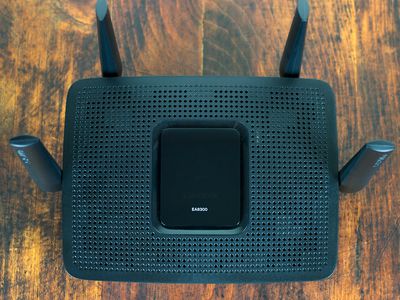
Mastering Mac Security: How to Recover Lost Passwords From Apple's Keychain System

Apple’s Development of Secure Operating Systems for Enhanced AI Center Security | Insights

Apple
During last week’s introduction of Apple Intelligence , Apple software engineering head Craig Federighi announced that the company will run some generative AI models in a secure cloud computing environment.
Called Private Cloud Compute (PCC), the service will be subject to scrutiny by outside security experts. Federighi said: “Just like your iPhone, independent experts can inspect the code that runs on these servers to verify this privacy promise.” The goal is to verify Apple’s privacy promises, including that user data will never be stored on PCC servers and will be expunged from memory once a request is fulfilled.
Also: Here’s how Apple’s keeping your cloud-processed AI data safe (and why it matters)
Federighi did not go into detail about how security researchers will inspect or audit the PCC servers, but a subsequent Apple blog post states the PCC servers will run a distinct version of the company’s operating system software that researchers will be allowed to inspect.
“When we launch Private Cloud Compute, we’ll take the extraordinary step of making software images of every production build of PCC publicly available for security research,” the Apple Security Engineering and Architecture and collaborating teams wrote.
Newsletters
ZDNET Tech Today
ZDNET’s Tech Today newsletter is a daily briefing of the newest, most talked about stories, five days a week.
Subscribe
The blog post goes on to say that Apple will “periodically also publish a subset of the security-critical PCC source code, [and] in a first for any Apple platform, PCC images will include the sepOS firmware and the iBoot bootloader in plaintext, making it easier than ever for researchers to study these critical components.”
Apple emphasizes that its devices “will be willing to send data only to PCC nodes that can cryptographically attest to running publicly listed software” as a means to ensure its privacy and security guarantees.
Apple makes various promises about the safety and security of using Private Cloud Compute to process some AI tasks.
Apple
Apple provided little detail about the nature of the server software, other than the fact that it is a derivation of the iOS and MacOS operating systems.
The servers will run on Apple’s own computer chips, analogous to the iPhone, iPad, and Mac, powered by “a new operating system: a hardened subset of the foundations of iOS and macOS tailored to support large language model (LLM) inference workloads while presenting an extremely narrow attack surface. This allows us to take advantage of iOS security technologies such as Code Signing and sandboxing .”
Also: Apple’s AI extravaganza left out 2 key advances - maybe next time?
Apple’s iOS and macOS are based on a combination of open-source technologies such as the Darwin operating system, developed at Apple in the 1990s, freeBSD , and closed-source software developed at Apple.
It’s unclear when developers will get a look at the new software. In the blog post, Apple researchers say they will give security researchers a “first look” at the software “soon.” A note on Apple’s developer site says Apple Intelligence will be available “in an upcoming beta” without mentioning anything specific about PCC timing.
ZDNET’s Maria Diaz speculates that iOS 18 betas will become available in July, although Apple’s website states in a footnote that “Apple Intelligence will be available in beta on iPhone 15 Pro, iPhone 15 Pro Max, and iPad and Mac with M1 and later, with Siri and device language set to US English, as part of iOS 18, iPadOS 18, and macOS Sequoia this fall.”
Apple
Every iPhone model that will be updated to Apple’s iOS 18 (and which ones can’t)
M3 MacBook Air vs. M2 MacBook Air: Which Apple laptop should you buy?
Why you shouldn’t buy the iPhone 16 for Apple Intelligence
I uncovered 8 cool ways to use LiDAR on an iPhone and iPad
- Every iPhone model that will be updated to Apple’s iOS 18 (and which ones can’t)
- M3 MacBook Air vs. M2 MacBook Air: Which Apple laptop should you buy?
- Why you shouldn’t buy the iPhone 16 for Apple Intelligence
- I uncovered 8 cool ways to use LiDAR on an iPhone and iPad
Also read:
- [New] Invisible Glance at FB Episodes
- [Updated] Navigating the Landscape of YouTube Advertising & Banners for 2024
- [Updated] The Future of Video on Facebook Focusing on Shorter Formats
- A Comprehensive Walkthrough for Downloading and Installing the Epson XP-830 Drivers
- Explore Best Android Emulators for PlayStation 2 Gaming
- From Restroom to Results: Streamlined Health Screening Techniques Unveiled at ZDNet
- Guide to Overcoming D3dx9_tutuary DLL Not Found Mishaps Effectively
- HoloLens Breakthrough by Microsoft – A 3D Reality Revolution
- How to Fix Realme GT 3 Find My Friends No Location Found? | Dr.fone
- In 2024, IPhone's Artistry for Time-Extended Cinematography
- Step-by-Step Guide: Correcting the Infamous Code 31 Error on Your PC
- Syncing iCloud Notes with Linux: A Comprehensive Guide | ZDNet
- The Smart Choice: Why Skipping the iPhone 16 Makes Sense for Tech-Savvy Consumers - Insights
- To Retweet or to Re-Tweet – What Does It Mean on Twitter?
- Transforming Businesses with Apple Vision Pro: 5 Leading Organizations Showcase Success Stories | Powered by ZDNET Analysis
- Two Ways to Track My Boyfriends Apple iPhone X without Him Knowing | Dr.fone
- Ultimate Guide to the Best 2024 Apple Watches: Expert Ratings and In-Depth Analysis | ZDNet
- Unbeatable Apple Watch Savings: Top Picks From July 2024
- Unlocking Rumors and Details: The Next-Gen Touchscreen MacBook Release Timeline & Specs
- Title: Mastering Mac Security: How to Recover Lost Passwords From Apple's Keychain System
- Author: John
- Created at : 2024-10-25 05:33:56
- Updated at : 2024-10-31 03:13:30
- Link: https://techno-recovery.techidaily.com/mastering-mac-security-how-to-recover-lost-passwords-from-apples-keychain-system/
- License: This work is licensed under CC BY-NC-SA 4.0.